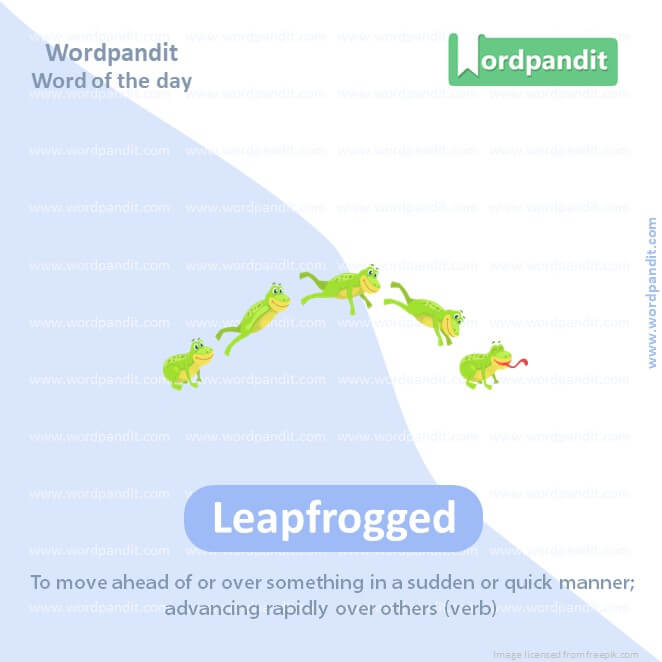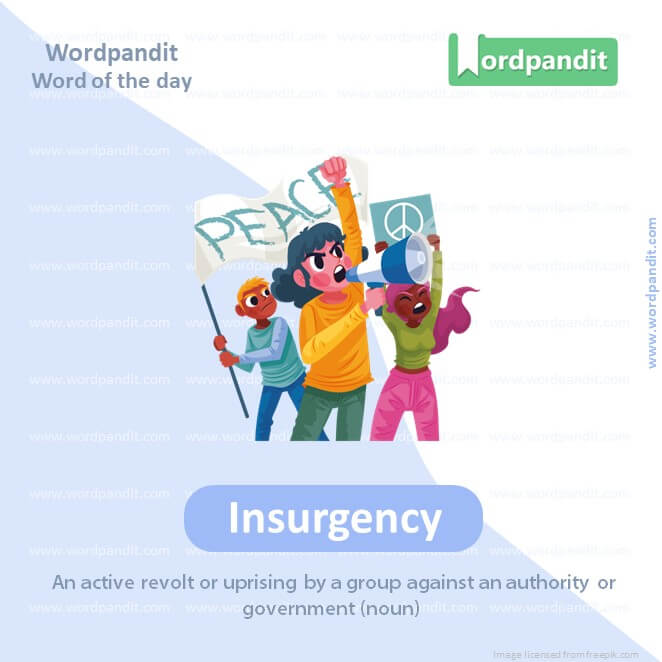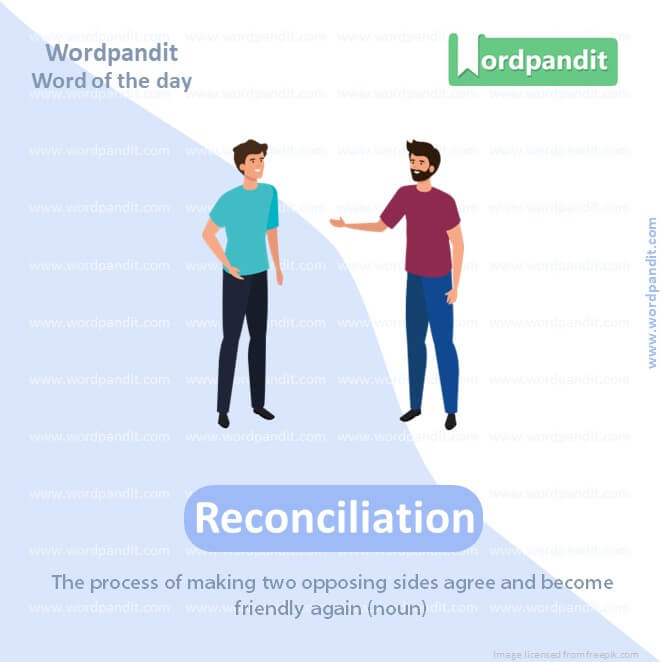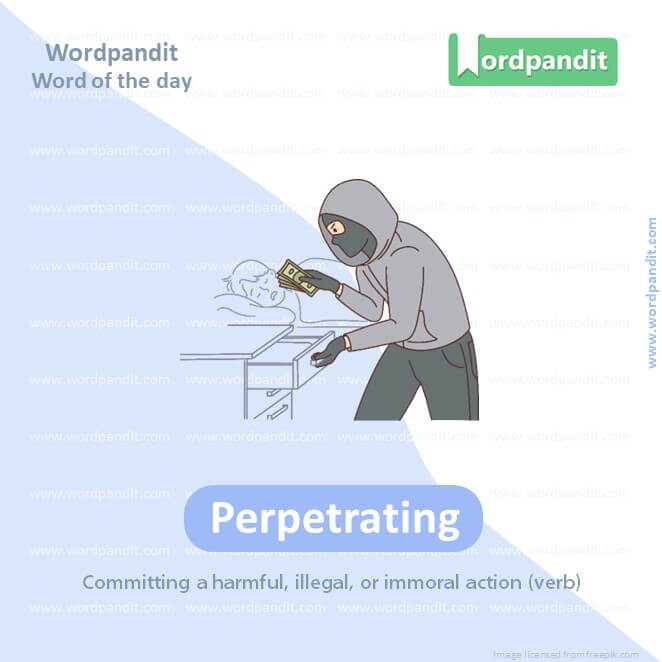Daily Vocabulary Words: List of Daily Used Words
Hi there. Welcome to this special section @ Wordpandit.
Our endeavour here is straightforward: highlighting important daily vocabulary words, you would encounter in The Hindu. This is your repository of commonly used words; essentially, we are posting a list of daily used words. Hence, this has significant practical application as it teaches you words that are commonly used in a leading publication such as The Hindu.
Visit the website daily to learn words from The Hindu.
WORD-1: Aggravating
CONTEXT: Governors in many States also increasingly demonstrate palpable recalcitrance, aggravating the hiatus between the States and the Centre.
SOURCE: The Hindu
EXPLANATORY PARAGRAPH: Think of a time when your little brother kept poking you even when you asked him to stop. That feeling of getting more and more annoyed is what ‘aggravating’ means. It’s when something makes you feel more upset or angry.
MEANING: Making a situation worse or more serious; causing annoyance or irritation (adjective)
PRONUNCIATION: ag-ruh-vay-ting
SYNONYMS: Annoying, Irritating, Exasperating, Vexing, Infuriating, Provoking
USAGE EXAMPLES:
1. The loud noise outside was aggravating her headache.
2. He found the constant questions from his little sister aggravating.
3. The delay in the game’s start was aggravating the fans.
4. It’s aggravating when you lose your keys.
WORD-2: Recalcitrance
CONTEXT: Governors in many States also increasingly demonstrate palpable recalcitrance, aggravating the hiatus between the States and the Centre.
SOURCE: The Hindu
EXPLANATORY PARAGRAPH: When you really don’t want to go to bed and keep saying no to mom, that’s being ‘recalcitrant.’ It means not wanting to do what someone asks you to do or not following rules.
MEANING: The state of being stubbornly resistant to authority or control (noun)
PRONUNCIATION: ri-kal-si-truhns
SYNONYMS: Defiance, Obstinance, Stubbornness, Unruliness, Insubordination, Contrariness
USAGE EXAMPLES:
1. The teacher was frustrated by the recalcitrance of her students.
2. His recalcitrance to follow the rules landed him in trouble.
3. The dog’s recalcitrance made training difficult.
4. Her recalcitrance against eating vegetables was challenging for her parents.
WORD-3: Juncture
CONTEXT: State governments have several core advantages in both political and economic matters which could come into play at this juncture.
SOURCE: The Hindu
EXPLANATORY PARAGRAPH: Imagine you’re on a treasure hunt and you reach a spot where two paths meet. That place is called a ‘juncture.’ It’s a point in time or a place where things join.
MEANING: A particular point in events or time, or a place where things join (noun)
PRONUNCIATION: juhngk-cher
SYNONYMS: Point, Moment, Intersection, Conjunction, Crossroads, Meeting Point
USAGE EXAMPLES:
1. At this juncture, we need to make a critical decision.
2. The juncture of the two rivers created a beautiful sight.
3. The story reached an exciting juncture.
4. They were at a crucial juncture in the negotiations.

WORD-4: Leapfrogged
CONTEXT: Twenty years ago when, supposedly, “India was Shining”, economists thought India had leapfrogged manufacturing in the development ladder, in which, traditionally, masses first transition from agriculture to manufacturing and then to services.
SOURCE: The Hindu
EXPLANATORY PARAGRAPH: Remember when you play leapfrog and jump over your friend’s back to get ahead? ‘Leapfrogged’ means to jump over something or someone in a similar way, but it can also mean moving ahead of others in a group or a line.
MEANING: To move ahead of or over something in a sudden or quick manner; advancing rapidly over others (verb)
PRONUNCIATION: leep-frogd
SYNONYMS: Surpassed, Overtook, Jumped, Vaulted, Outstripped, Skipped Ahead
USAGE EXAMPLES:
1. She leapfrogged several candidates to get the promotion.
2. The small company leapfrogged its competitors with innovative products.
3. He leapfrogged over the fence effortlessly.
4. Their technology leapfrogged existing standards.

WORD-5: Incentives
CONTEXT: It cannot afford to misspend it, by reducing taxes and duties and giving incentives to investors, with the expectation that benefits will gush down to the masses.
SOURCE: The Hindu
EXPLANATORY PARAGRAPH: Imagine getting a gold star for finishing your homework. That gold star is an ‘incentive.’ It’s something that encourages you to do something or work harder.
MEANING: Rewards or offers that encourage people to do something (noun, plural)
PRONUNCIATION: in-sen-tivz
SYNONYMS: Motivators, Rewards, Enticements, Lures, Stimuli, Inducements
USAGE EXAMPLES:
1. The company offered incentives to its top-performing employees.
2. Getting extra screen time was an incentive to finish his chores.
3. The government provided tax incentives for businesses.
4. She used a candy bar as an incentive for her little brother.

WORD-6: Insurgency
CONTEXT: The top court’s recommendation of a truth and reconciliation commission to help the victims of the insurgency that gripped the Kashmir Valley must not go unheeded.
SOURCE: The Hindu
EXPLANATORY PARAGRAPH: Think about a group of people in a movie who are trying to fight against the rulers or leaders because they want change. This is called an ‘insurgency.’ It’s when people rebel against the authority.
MEANING: An active revolt or uprising by a group against an authority or government (noun)
PRONUNCIATION: in-sur-juhn-see
SYNONYMS: Rebellion, Revolt, Uprising, Mutiny, Resistance, Revolt
USAGE EXAMPLES:
1. The government was challenged by an armed insurgency.
2. The insurgency lasted for several years.
3. He wrote a book on the causes of the insurgency.
4. The military was sent to control the insurgency.

WORD-7: Reconciliation
CONTEXT: The top court’s recommendation of a truth and reconciliation commission to help the victims of the insurgency that gripped the Kashmir Valley must not go unheeded.
SOURCE: The Hindu
EXPLANATORY PARAGRAPH: When you and your friend have a fight but then say sorry and make up, that’s ‘reconciliation.’ It means coming back together and fixing a friendship after a fight or disagreement.
MEANING: The process of making two opposing sides agree and become friendly again (noun)
PRONUNCIATION: rek-uhn-sil-ee-ay-shuhn
SYNONYMS: Settlement, Resolution, Mending, Harmony, Agreement, Accord
USAGE EXAMPLES:
1. They sought reconciliation after a long disagreement.
2. The couple went to counseling for reconciliation.
3. Reconciliation between the two countries was vital for peace.
4. He hoped for reconciliation with his estranged brother.

WORD-8: Perpetrating
CONTEXT: Since truth-telling provides an opportunity for victims to narrate their stories which may facilitate an acknowledgement from those responsible for perpetrating the wrongs, and from society as a whole, this may pave the way for reconciliation, he wrote separately in the Epilogue.
SOURCE: The Hindu
EXPLANATORY PARAGRAPH: If someone did something really bad, like stealing cookies from the cookie jar and blaming it on their brother, they are ‘perpetrating.’ It means doing something that is wrong or illegal.
MEANING: Committing a harmful, illegal, or immoral action (verb)
PRONUNCIATION: pur-puh-tray-ting
SYNONYMS: Committing, Executing, Carrying Out, Inflicting, Enacting, Conducting
USAGE EXAMPLES:
1. The crime was perpetrated by an unknown individual.
2. They were accused of perpetrating a fraud.
3. The novel describes the perpetrating of a heinous act.
4. The lawyer addressed the imputations in court.
WORD-9: Entrusted
CONTEXT: Much will depend on the composition of the commission because it is the members who provide impartiality and objectivity to the pious work they are entrusted with.
SOURCE: The Hindu
EXPLANATORY PARAGRAPH: When your mom gives you her favorite vase to hold, she’s ‘entrusting’ it to you. It means she’s giving you something important to take care of because she believes you can do it.
MEANING: Given the responsibility to take care of something or someone (verb)
PRONUNCIATION: en-trust-ed
SYNONYMS: Charged, Consigned, Assigned, Delegated, Handed Over, Confided
USAGE EXAMPLES:
1. He was entrusted with the key to the safe.
2. She entrusted her pet hamster to her friend while on vacation.
3. The secret recipe was entrusted to the chef.
4. They entrusted their savings to the bank.
WORD-10: Imputations
CONTEXT: But as far as state actors are concerned, levelling imputations against the Indian Army (and/or the Jammu and Kashmir security forces) which have been holding fort since the late 1940s may not go down well with the government, as the Army’s presence in the Valley is still required to further normalise the situation.
SOURCE: The Hindu
EXPLANATORY PARAGRAPH: Imagine someone saying you took the last piece of cake when you didn’t. They are making an ‘imputation’ against you. It means they are accusing you of doing something without proof.
MEANING: Accusations or claims that someone has done something wrong or bad (noun, plural)
PRONUNCIATION: im-pyoo-tay-shuhns
SYNONYMS: Allegations, Accusations, Aspersions, Insinuations, Charges, Assertions
USAGE EXAMPLES:
1. The imputations against the politician were serious.
2. He vehemently denied the imputations of misconduct.
3. The novel dealt with imputations of theft and deceit.
4. The lawyer addressed the imputations in court.
Vocabulary Daily Use Words
In the architecturally diverse world of language learning, ‘vocabulary daily use words’ act as a cornerstone. We often take these words for granted, but their significance in day-to-day communications is nothing short of monumental. Mastering these ‘vocabulary daily use words’ should be more than an ancillary task on the sideline; it should take the center stage in your language learning journey.
To begin with, approach ‘vocabulary daily use words’ with the same gusto and reverence as you would an untapped treasure chest. Go beyond the conventional realm of textbooks and explore the world of contemporary literature, newspapers, and digital content. By immersing yourself in these mediums, you’re aligning your learning with real-world language usage, thereby gaining a practical understanding of ‘vocabulary daily use words.’
Memory-enhancing tools add an extra layer of effectiveness to your learning. Flashcards, for example, are a great way to make your study sessions interactive and memory-forging. Coupled with the Leitner system, which is a principle of spacing and repetition, you can ensure better recall and understanding of ‘vocabulary daily use words.’
Furthermore, leveraging mnemonic devices aids in etching the ‘vocabulary daily use words’ into your memory. Associating common words with unique and memorable narratives in your mind enhances their recall. Regular revision and using these words in routine conversations further cement your proficiency.
The potency of immersion as a language learning strategy cannot be emphasized enough. Conversing with native speakers, if possible, provides context to ‘vocabulary daily use words’ and boosts your fluency.
In conclusion, mastering the ‘vocabulary daily use words’ is an enriching journey that requires ongoing effort, continual exposure, and hands-on practice. The strategy of learning through various mediums, using memory-enhancing techniques, leveraging mnemonic devices, and immersion can help demystify these words and enhance your overall language proficiency. So, gear up and embrace the linguistic adventure of mastering the ‘vocabulary daily use words.’













